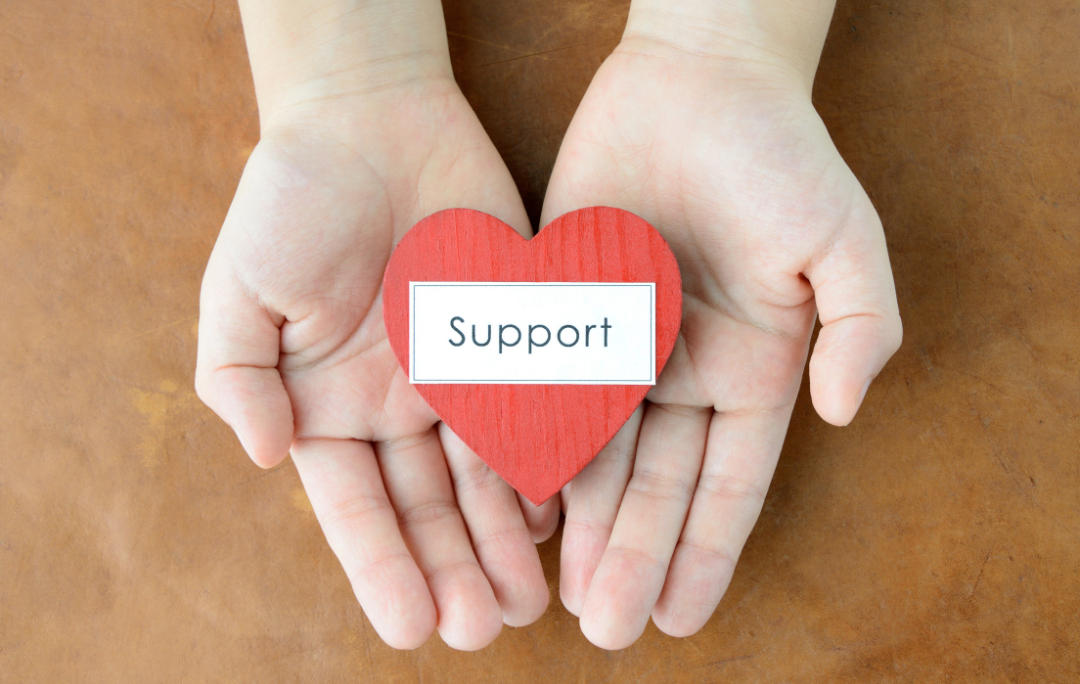Symptoms of Grief: Understanding & Coping with Loss

Grief is the powerful mass of emotions we can feel after we have a significant loss. It is a full body experience that can manifest in a variety of ways and impact us on every level.
Moving through grief require us to slow down, to be more kind and compassionate to ourselves. Knowing the signs and symptoms of grief also allows us to be a better support for our family and friends when they are moving through their own losses. While every person's experience is unique, there are some common symptoms you may notice:

Physical Symptoms of Loss
Fatigue: A deep, lingering exhaustion that feels unshakable, even with rest.
Sleep Disturbances: Trouble falling asleep, staying asleep, or feeling rested.
Appetite Changes: Overeating for comfort or a loss of appetite due to stress.
Aches and Pains: Headaches, stomachaches, or muscle tension, often without a clear physical cause.
Weakened Immune System: Increased susceptibility to colds, infections, or other illnesses.
Heart Palpitations: A racing or pounding heart. This can feel unnerving, don’t hesitate to seek medical attention if you are concerned.

Mental Symptoms of Loss
Confusion: A sense of disorientation or an inability to focus
Forgetfulness: Difficulty remembering tasks, appointments, or conversations.
Overthinking: Obsessive or ruminating thoughts about the loss or “what if” scenarios.
Difficulty Making Decisions: Even small choices can feel overwhelming.
Reduced Concentration: Struggling to stay present or complete tasks effectively.
Intrusive Memories: Reliving moments tied to the loss, which can be distressing.

Emotional Symptoms of Loss
Numbness: A lack of emotional response, often as a self-protection mechanism.
Sadness: An all-encompassing sorrow or emptiness.
Anger: Frustration or rage directed at oneself, others, or the situation.
Guilt: Feeling responsible or remorseful, even when unwarranted.
Anxiety: Heightened fear or worry about the future or one’s ability to cope.
Loneliness: A profound sense of isolation, even when surrounded by others.
Resentment: Toward circumstances, people, or even the person or thing lost.
Relief: A mix of guilt and gratitude, especially after prolonged suffering or difficult circumstances. Caregivers can seesaw between relief and guilt.
Why These Symptoms Arise
Loss disrupts our sense of safety, stability, and connection. Our brain and body perceive it as a threat, which sets off a stress response that can linger for weeks, months, or longer. These symptoms are the body and mind’s way of processing grief and attempting to adapt to the new reality.
Honour How You Feel
Naming and understanding our symptoms and feelings is an important first step toward healing. Recovering from grief is about recognizing these reactions, expressing the emotional truth of our pain, and taking small, simple steps to move forward with clarity and peace.
Take Care of Yourself
The most important thing to do after a loss is to take care of yourself! Managing the physical, mental, and emotional symptoms of loss requires self-compassion, intentional action, and the support of others.

Physical Self Care Practices
- Prioritize rest. Listen to your body. Allow yourself more rest or naps without guilt
- Practice relaxation techniques like deep breathing or yoga to help calm your nervous system
- Do a little light exercise, such a walking or stretching, to release tension and boost endorphins
- Avoid intense physical strain, as your energy levels may already be depleted.
- Nourish yourself; eat small, balanced meals if your appetite is low, focusing on easy-to-digest foods
- Stay hydrated; focus on water and herbal teas
- Use heat packs, massages, or warm baths to ease aches and tension.
- Consult with a healthcare provider if your physical symptoms persist.

Mental Self Care Practices
- Simplify your to-do list and focus on one task at a time.
- Break tasks into small steps:
- Use reminders or write things down to ease forgetfulness.
- Ask for help!
- Try grounding techniques, such as observing your surroundings or deep breathing, to manage intrusive or ruminating thoughts.
- Meditate for a few minutes daily to create a sense of calm.
- Journaling is a helpful tool to help you process confusing and overwhelming thoughts. Include prompts like: “What am I feeling right now?” or “What do I need most today?”
- If intrusive memories or overthinking persist, therapy, counselling, or a grief recovery program can help untangle the mental chaos.

Emotional Self Care Practices
- It’s important to acknowledge your emotions. Give yourself permission to feel sadness, anger, guilt, or relief without judgment.
- Remind yourself that all emotions are valid and part of the healing process.
- Connect with trusted people; share your feelings with a friend, family member, or support group who can listen without trying to analyze, criticize or judge.
- Avoid isolation, but set boundaries to protect your energy.
- Create rituals for release; light a candle, write a letter, or hold a small ceremony to honour your loss and express your emotions.
- Treat yourself with kindness. Speak to yourself as you would to your best friend.
- Remind yourself that grief is a journey, not a test of strength.
- Consider energy healing; Reiki or other holistic practices can help release stored emotions and energy blocks, promoting balance and relaxation.
Taking care of yourself during loss isn’t about fixing or rushing through your grief. It’s about honouring your emotions, listening to your body, and giving yourself permission to heal in your own time.
Please remember, you’re not alone in this. Be gentle with yourself, reach out for support when you need it, and trust that, step by step, you’ll find your way forward.
Healing doesn’t mean forgetting; it means learning to carry your loss with love and compassion for yourself.




